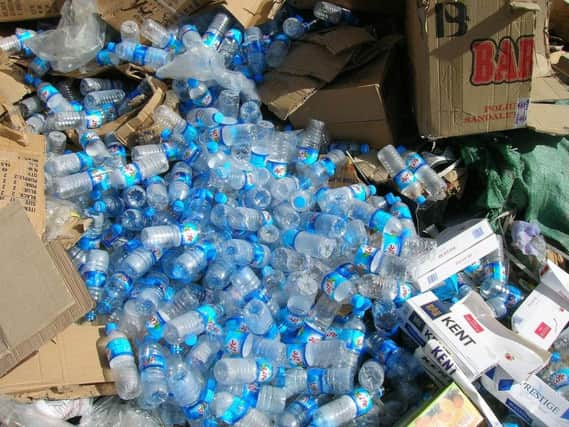How bottle deposit schemes work in other countries as England prepares to catch up with neighbours


Environment Secretary Michael Gove is set to announce the proposals in a bid to boost recycling rates and cut litter.A consultation will consider how the plan could work in England, but here is how other countries have implemented the scheme.
Norway
Norway introduced a system known as "pant" in 1992, which sees a small surcharge placed on every bottle that is bought.
Advertisement
Hide AdAdvertisement
Hide AdThis deposit can then be paid back to shoppers when the bottles and cans are returned to "reverse vending machines" placed in most supermarkets.
The returned bottles and cans are then taken to be recycled.
A charge of one krone (9p) is attached to bottles of 500ml and under, rising to three krone (27p) for larger bottles.
Norwegians now recycle 97% of plastic bottles, according to the latest statistics.
Sweden
Advertisement
Hide AdAdvertisement
Hide AdDeposit schemes were introduced in Sweden in 1984 for cans and 1994 for plastic bottles.
From 2006, a law was introduced to require a financial incentive to encourage the return and recycling of plastic bottles and cans, although the deposit amount is not set in legislation.
Anyone serving or importing drinks for consumption must ensure they are included in an approved return scheme.
Privately-owned company Returpack is responsible for the deposits and collection from more than 2,000 stores across Sweden, with beverage companies paying the fees one-way to Returpack.
Germany
Advertisement
Hide AdAdvertisement
Hide AdThe German deposit scheme was introduced in 2003 and is known as the "pfand" system.
Retailers or wholesalers pay a deposit to the producer, which is passed on to shoppers as a surcharge. Most supermarkets have a reverse vending machine which scans empty bottles when they are returned and prints a receipt which can be exchanged for cash.
The deposit for refillable bottles is not set in law, but the standard rates for single-use containers, such as cans and plastic bottles, is about 25 cents (22p) up to 300ml.
Latest data indicates more than 93% of plastic bottles are recycled.
Australia
Advertisement
Hide AdAdvertisement
Hide AdDeposit schemes are relatively new in parts of Australia, having been implemented in states such as South Australia, the Northern Territories and New South Wales. Western Australia and Queensland are set to follow suit over the coming months.
In New South Wales, the Return and Earn scheme began in December last year.
Beverage suppliers pay for the refunds, with costs passed on to consumers with an increase in the price of drinks.
More than 500 collection points are located across the state, with 10-cent (6p) refund vouchers given when bottles are placed into reverse vending machines.
The scheme covers plastic and glass bottles, aluminium and steel cans and cartons. It is expected that 12.6 million more drink containers will be recycled over the next 20 years.